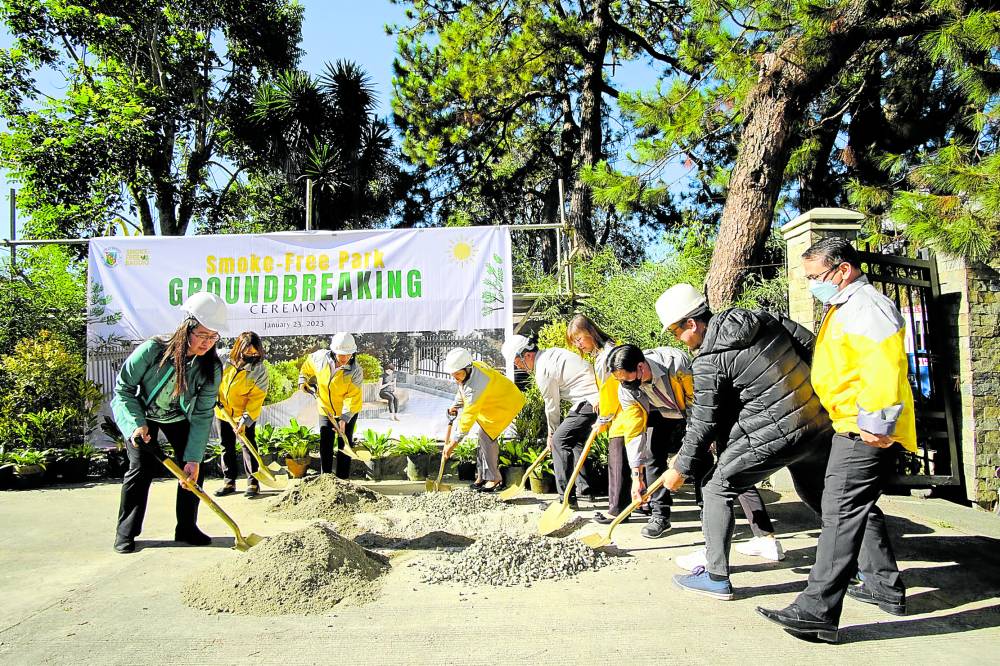Baguio smokers cut spending for cigarettes – health survey

SMOKE-FREE PARK Baguio City officials lead the groundbreaking ceremony for a “smoke-free park” within City Hall grounds on Jan. 23. —PHOTO COURTESY OF BAGUIO CITY PUBLIC INFORMATION OFFICE
BAGUIO CITY—Smokers in this city are cutting back on their cigarette consumption as the Cordillera continues to suffer from a high inflation rate, local officials said on Wednesday.
The average city smoker spent only P200 monthly on cigarettes last year, reflecting a huge drop from the monthly P500 expense in 2019, said Dr. Nelson Hora, a medical officer of the City Health Services Office.
Hora presented the 2022 results of the city government’s annual Baguio Adult Tobacco Survey, which had 820 respondents, during a briefing.
As of Thursday, a cigarette stick sells for P10 in this city, while a pack of a popular brand sells for P150 in convenience stores, or as much as P190 in “sari-sari” stores.
According to Hora, the rising inflation rate in the Cordillera may help explain the drop in the prevalence of Baguio smokers to 13.1 percent last year, from a high of 35.4 percent in 2014, 34 percent in 2016 and 17.6 percent in 2019.
Article continues after this advertisementHouse-to-house drive
Cordillera inflation last December rose to 7.7 percent from 7.6 percent in November, and was described by the Philippine Statistics Authority as the region’s “highest inflation rate in 2022 and its highest since November 2008.”Government statisticians said alcoholic beverages and tobacco were among the commodities that recorded “faster year-on-year increments (or increases)” in prices.
Article continues after this advertisementThe country’s inflation rate at the start of the year rose even further to 8.7 percent as of January.
The high cost of basic goods and services meant smokers have little or no more budget for cigarettes and this “is good news,” Hora said, because reducing tobacco use meant protecting more people from heart and lung ailments. He said smoke-free advocates were shifting their campaign to households where exposure to second-hand smoke remained high.
But the city’s smoke-free movement is hoping the same tax regime will cover e-cigarettes and other vaping devices, said Dr. Donnabel Tubera-Panes, Baguio epidemiologist.
The 2022 survey showed that the prevalence of Baguio vapers rose from 1.5 percent in 2019 to 5.1 percent in 2022, and the trajectory of use was higher for males since it rose from 2 percent in 2019 to 7.6 percent last year.Most vapers are teens and young adults, so national and local policies like high tariffs on electronic nicotine delivery systems will be effective too, Panes said.
Panes said local legislation could also prevent children from accessing vape devices and materials online.
Smoking “kills you softly,” but vaping uses chemicals that could quickly damage the lungs, she said.